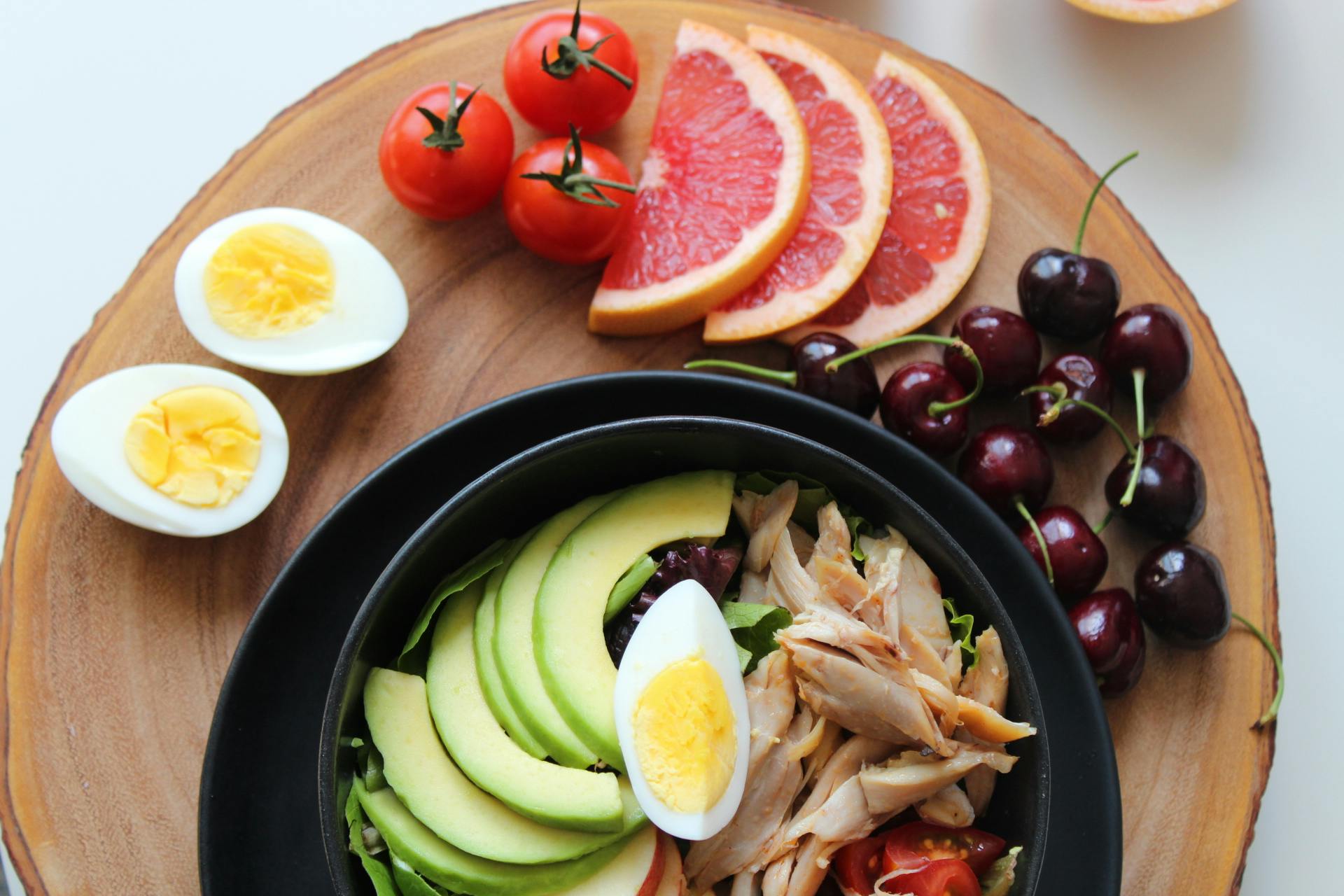Choosing the Right Foods
When it comes to maintaining optimal health through diet, it’s crucial to focus on consuming fresh, local, or organic foods whenever possible. These choices ensure the quality and nutrient retention of your meals. Prioritizing nutrient-dense, high-quality ingredients over processed, fried, artificially flavored, and fast foods can significantly impact your well-being.
Incorporating Fiber and Hydration
Including fiber-rich foods from vegetables, legumes, seeds, and fruits in every meal is essential for digestive health and maintaining a feeling of fullness. Hydration also plays a critical role in overall health, so make sure to drink plenty of clean, filtered water throughout the day.
Mindful Eating and Fermented Foods
Mindful eating is another key aspect—eating without distractions allows you to enjoy the taste and texture of your food, which can improve digestion and satisfaction. Incorporating fermented foods like sauerkraut, kimchi, yogurt, and kombucha can enhance gut health, providing beneficial probiotics.
Time-Restricted Eating
Practicing time-restricted eating, such as maintaining at least a 12-hour window between your last meal of the day and the first meal the next day, supports metabolic health. This practice can be part of a healthy routine that promotes longevity and optimizes your energy levels.
Essential Vitamins and Intermittent Fasting
Vitamins and minerals are foundational to health, so ensure you’re getting enough essential nutrients such as folate, vitamin B12, and magnesium. Including epinutrient-rich foods like cruciferous vegetables, berries, and green tea can offer additional health benefits, potentially enhancing your diet’s impact on longevity and well-being. Exploring dietary practices like intermittent fasting, particularly the 12/12 method—where you fast for 12 hours and eat within a 12-hour window—may also be beneficial for longevity and overall health.
If you need help integrating these practices into your lifestyle or have any questions, feel free to contact me. I’m here to support you on your journey to optimal health.
By integrating these dietary guidelines into your daily routine, you can create a balanced, nutritious lifestyle that supports your long-term health goals.
Foods with Bioactive Compounds
Methylation Adaptogens
Vegetables & Fruits
- Blackberry, Blackcurrant, Blueberry, Raspberry, Strawberry – Chlorogenic acid, Ellagic acid
- Peach, Prune, Potato, Tomato – Chlorogenic acid
- Apple, Pear – Chlorogenic acid, Epicatechin, Proanthocyanidin, Ursolic acid
- Eggplant – Chlorogenic acid
- Brussels Sprouts, Garden Cress, Mustard Greens, Collard Greens, Turnip, Kale, Radish, Watercress, Kohlrabi, Cabbage, Cauliflower, Bok Choy, Broccoli, Horseradish – Diindolylmethane (DIM)
- Pomegranate, Grape – Ellagic acid
- Brown Seaweed, Green Seaweed – Ellagic acid, Genistein, Hesperidin
- Cocoa, Cherry, Black Grape, Custard Apple, Red Raspberry, Cranberry, Apricot, Pear, Nectarine, Plum, Persimmon, Green Bean, Rhubarb, Green Grape, Kiwi – Epicatechin
- Cranberries, Blackberries, Raspberries, Fuji Apples, Golden Delicious Apples, Granny Smith Apples, Red Delicious Apples (Skin Only), Plum, Pears, Sweet Onion – EGCG
- Kudzu Root, Currant, Raisin – Equol (produced by gut microbiome when consuming soy containing daidzein)
- Strawberry, Apple, Mango, Persimmon, Kiwi, Grape, Tomato, Onion, Cucumber – Fisetin
- Red Seaweed – Genistein, Hesperidin
- Orange, Tangerine, Lemon, Lime, Grapefruit, Welsh Onion – Hesperidin
- Caper, Kale, Turnip Greens, Endive, Black Bean, Broccoli, Cabbage, Red Raspberry, Lingonberry, Cranberry, Red Onion, Potato, Leek, Blueberry, Currant, Green Grape, Strawberry, Tomato, Broccoli Sprouts, Chive, Apricot, Apple, Green Bean – Kaempferol
- Onion Leaves, Broccoli, Globe Artichoke, Celery Leaves, Carrot, Black Olive, Green Pepper, Red Lettuce, Lemon Juice, Green Olive, White Radish – Luteolin
- Guava, Watermelon, Pink Grapefruit, Papaya, Red Bell Pepper, Persimmon, Carrot, Apricot, Asparagus, Red Cabbage, Mango – Lycopene
- Blueberry, Cranberry, Welsh Onion, Blackcurrant – Myricetin
- Grapefruit, Lemon, Lime, Orange, Tangerine, Grape, Seaweed – Naringenin
- Cocoa, Chokeberry, Currant, Lingonberry, Black Plum, Rhubarb, Gooseberry, Bilberry, White and Green Grapes, Red Grape, Yellow Plum, Pears, Sea Buckthorn Berry, Peach, Custard Apple, Apricot, Red Raspberry, Elderberry, Nectarine, Blackberry, Mango, Cherry, Date, Black Currant, Marionberry, Avocado, Quince, Banana, Carob, Kiwi – Proanthocyanidin
- Blueberry, Cranberry, Bilberry, Lingonberry – Pterostilbene
Methylation Donors
Vegetables & Fruits
- Spinach, Beet – Betaine (trimethylglycine, or TMG)
- Mushrooms, Carrot, Avocado, Berries (including strawberries, blueberries, etc.), Banana, Cauliflower, Sweet Potato, Onion, Swiss Chard – Biotin (B7)
- Spirulina, Butternut Squash – Cysteine
- Algae – Docosahexaenoic acid (DHA) can be synthesized from precursor fatty acid alpha-linolenic acid (ALA), found in seeds like chia, flax, walnuts
- Turnip Greens, Wakame Seaweed, Spinach, Kelp Seaweed, Okra, Collard Greens, Artichoke, Asparagus, Leek, Enoki Mushroom, Daikon Radish, Maitake Mushroom, Mustard Greens, Shiitake Mushroom – Folate (B9)
- Seaweed (kelp), Cocoa, Leek, Spinach, Avocado, Lambsquarters, Daikon Radish, Horseradish – Magnesium
- Spirulina – Methionine
- Potatoes, Yam, Dried Apricots, Avocado, Tomato, Spinach, Portabella Mushroom, Swiss Chard, Enoki Mushroom, Shiitake Mushroom, Lambsquarters, Daikon Radish, Cocoa, Maitake Mushroom, Coconut Meat, Apple – Potassium
- Potatoes, Prunes, Chestnut, Ancho Pepper, Garlic, Leek, Shiitake Mushroom, Palm Heart, Daikon Radish, Dried Apricots, Chive – Pyridoxine B6
- Spirulina, Chive, Shiitake Mushroom, Daikon Radish – Riboflavin B2
- Alliums (Chive, Leek, Garlic, Onion, Shallot), Cruciferous Vegetables (Arugula, Bok Choy, Broccoli, Brussels Sprouts, Cabbage, Cauliflower, Collards, Daikon, Horseradish Root, Kale, Kohlrabi, Mustard Greens, Radish, Rutabaga, Tatsoi, Turnip, Watercress, Wasabi), Garden Cress, Coconut, Spinach – Sulfur
Reference: dr Kara Fritzgerald: Younger You; reduce your bio age and live longer, better; Hachette Book Group, Jan 2022



Comments +